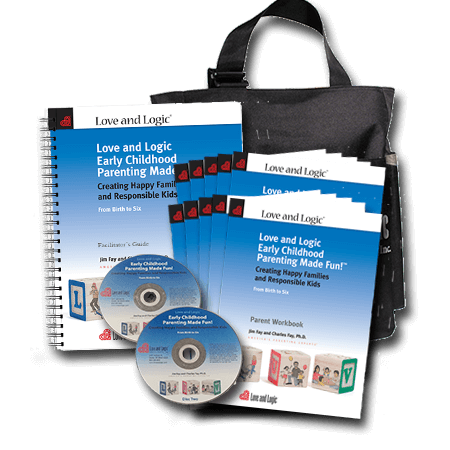Nurturing Independence Love and Logic in Early Childhood

Nurturing Independence: Love and Logic in Early Childhood Education
In the dynamic realm of early childhood education, the principles of Love and Logic play a pivotal role in shaping the learning environment. These strategies, rooted in empathy and effective communication, are instrumental in fostering independence, building resilient kids, and creating a positive foundation for future learning.
Empathy as a Cornerstone
At the heart of Love and Logic is the principle of empathy. Educators and parents alike recognize the significance of understanding a child’s perspective. By acknowledging their feelings and validating their experiences, we lay the groundwork for a compassionate and trusting relationship. This empathetic approach sets the stage for effective communication and problem-solving, essential skills for a child’s emotional growth.
Guiding with Love, Teaching with Logic
Love and Logic provide a balanced approach to parenting and teaching. It encourages adults to guide with love, emphasizing the importance of warm and nurturing relationships. Simultaneously, it introduces logical consequences for actions, teaching children about responsibility and accountability. This dual approach helps in creating an environment where children feel loved and supported while learning the natural consequences of their choices.
Positive Discipline for Positive Results
One of the hallmarks of Love and Logic is its focus on positive discipline. Instead of punitive measures, this approach encourages educators and parents to implement logical consequences that are related to a child’s actions. This not only helps in shaping behavior but also fosters critical thinking skills. By experiencing the cause-and-effect relationship between their choices and outcomes, children develop a sense of responsibility.
Encouraging Independence Through Choices
Love and Logic places a significant emphasis on providing children with choices. This intentional decision-making process empowers children to take ownership of their actions and decisions. By offering controlled choices, educators and parents allow children to practice decision-making in a safe and guided environment. This nurtures a sense of independence and self-efficacy from an early age.
Building Resilient Kids
Resilience is a crucial life skill that Love and Logic seeks to instill in early learners. By allowing children to face age-appropriate challenges and experience the natural consequences of their actions, they learn to adapt and bounce back from setbacks. This resilience becomes a foundation for future success, as children develop problem-solving skills and the ability to navigate life’s challenges with confidence.
Effective Communication in Early Education
Communication is at the core of any successful educational endeavor, and Love and Logic prioritize effective communication between educators, parents, and children. The approach encourages adults to maintain a calm and assertive demeanor, using language that is both respectful and supportive. By modeling positive communication, adults provide children with valuable skills that extend beyond the classroom.
Creating Confident Learners
The Love and Logic philosophy aims to create confident learners who are equipped to face the complexities of the world. Through a combination of love, empathy, and logical consequences, children develop a strong sense of self and a belief in their ability to navigate challenges. This confidence becomes a driving force in their academic and personal pursuits, setting the stage for a lifelong love of learning.
Harmony in Early Childhood Settings
Implementing Love and Logic principles creates a harmonious learning environment in early childhood settings. Consistent application of these strategies fosters a sense of predictability and security for children. When children know what to expect and understand the consequences of their actions, they feel secure, leading to a more positive and productive learning atmosphere.
Empowering Young Minds
Love and Logic empower young minds to become active participants in their learning journey. By involving children in decision-making processes, educators and parents tap into their innate curiosity and creativity. This empowerment cultivates a love for learning and a sense of agency that extends far beyond the early childhood years.
Strategies for Everyday Challenges
Love and Logic provide practical strategies for addressing everyday challenges in early childhood settings. From handling disruptive behavior to managing conflicts, the principles of Love and Logic offer a toolbox of effective techniques. Educators and parents can rely on these strategies to navigate the complexities of early childhood education with confidence.
In conclusion, Love and Logic serve as guiding principles in early childhood education, fostering independence, building resilient kids, and creating a positive and empowering learning environment. By embracing the principles of empathy, logical consequences, and effective communication, educators and parents contribute to the holistic development of young minds, laying the foundation for a lifelong love of learning. Read more about love and logic early childhood



